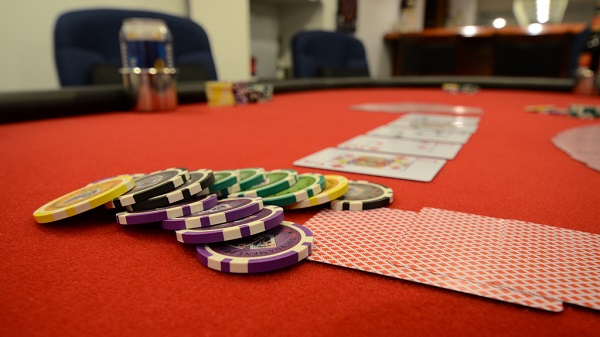We’ve all been there – heads-up against a far-superior opponent. You sweat, you second-guess, and (nine times out of ten) you make the wrong move.
I can’t think of a tougher situation than facing down an opponent who’s better than you. It’s true in any sport or hobby. Playing a round of golf with your buddy just isn’t as much fun when your buddy has a single-digit handicap.
Things get even stickier when you’re the worst player at the table. When you’re staring down seven players that are better than you, intimidation is the least of your worries. You’ll find yourself playing afraid. You’ll be aggressive at the wrong times, if at all. It’s a nightmare.
Unfortunately, it’s a necessary nightmare. We all started somewhere, and for most of us it was at the bottom.
To Play or Not to Play?
Your first decision when you find yourself the worst player at the table – are you going to stick around? It may not be profitable to stay in. No one would blame you for bowing out and finding easier competition. In fact, I’d recommend doing just that in some cases. Total novice players should always leave the table rather than play heads-up against fiercer opposition.
But I think there’s also value in sticking it out and playing. For starters, there’s a good chance that you’ll rise to the level of your competition. When you’ve got a table full of players with more experience and a stronger skill set, you’ve basically got a table full of teachers. Another reason you might consider sticking around is to test the waters before you move up stakes.
The most important reason at all for sticking in against a tough field – you can win.
I’ve been the worst player at the table more often than not, and yet I still win enough to keep my bankroll in the black and I love the game of poker. If I’d spent the last decade getting creamed and losing money left and right, I might sing a different tune.
The tips below will help you overcome the other player’s abilities and (believe it or not) win poker games against better players.
Tighten up
The easiest way to prevent poor play due to fear is to tighten up your range, especially out of position. You’re not going to win any popularity contests by playing this way, but you’re going to have to step on some toes to beat better players. Starting hand selection is always important, even more so when you’re trying to keep your wits about you. Stick to strong hands and strong draws.
Pay attention to flop texture
Once you’ve got your cards in your hand, you can expect one of nearly 20,000 possible flops. Creating and memorizing that many strategic possibilities is humanly impossible, so poker players categorize flops and respond to the “texture” of the flop rather than the specific card combinations. You can find dozens of different ways of gauging and responding to flop texture online – the one you choose doesn’t matter so long as it gives you a good sense of the composition of the board.
Disguise your hand’s strength
Some folks call this “information hiding.” It’s a good tactic against a certain kind of advanced player, but isn’t usually recommended as a cure-all. In a situation where you’re literally the worst player at the table, I think disguising strong hands makes a ton of sense. For example, instead of raising with a strong hand, check-raise your opponents until they figure out you’re not giving anything away. If you think you have the skill, you could also consider a re-raise bluff significant enough to force folds, just to get them off your trail.
Let your opponent do the betting
Play into the notion that your opponents are way better than you – let them take the lead in bets. This really only works if you have a strong hand. If you do, don’t try to blow them off their hand. Let them bluff, or keep throwing chips in the pot. If your hand is strong enough, all they’re doing is raising in your place. As an added bonus, this is a great way to disguise hand strength, too.
Conclusion
Do I tell every poker player I know to stick it out against an entire table of better players? Of course not – and I don’t think you should stick around in every circumstance, either. But there is a big pay-off to be earned by doing so. It’s all about observing the play of your opponents, whether they’re better than you or not, and deciding if the methods above will work in your favor. If you stick around, you may lose a couple of bucks and gain an excellent education. If that trade-off is worth it to you, I highly recommend you give it a try.

 MENU
MENU















